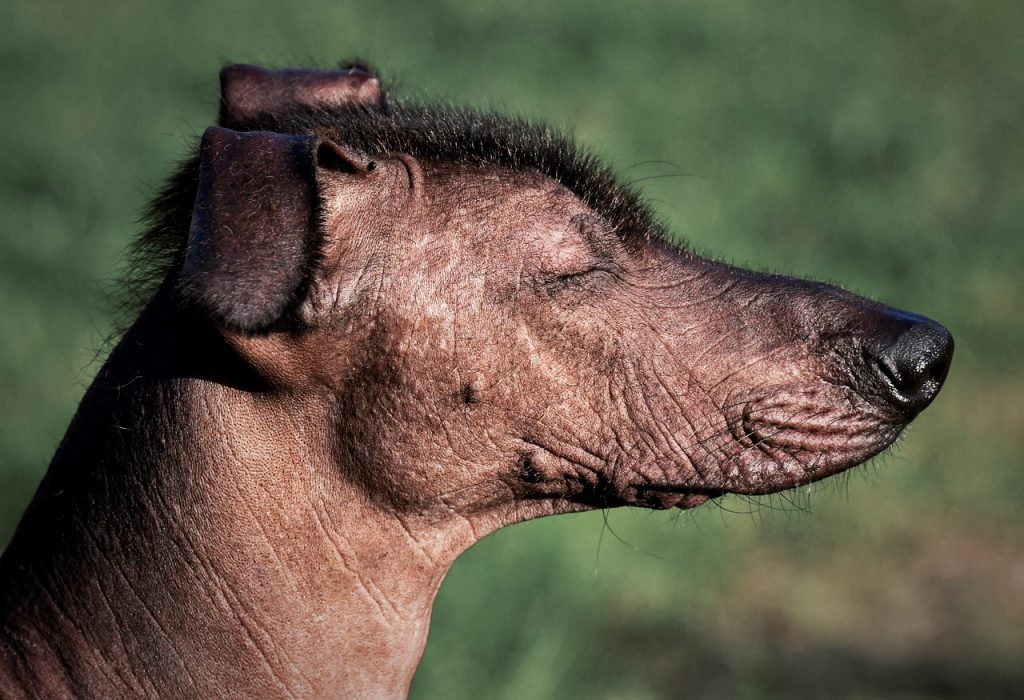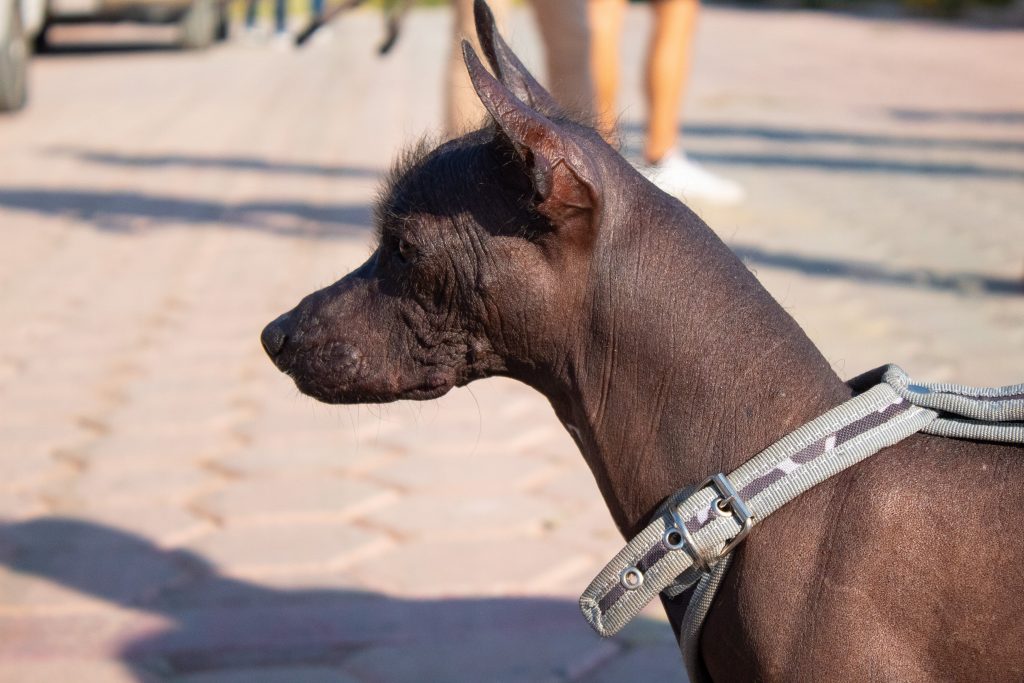Are you noticing an unusual amount of hair loss in your furry friend? It may surprise you to learn that, just like humans, dogs can experience stress-induced hair shedding. This blog aims to unravel the complex relationship between emotional strain and canine hair loss while providing practical solutions on how to manage it effectively. Can stress cause hair loss in dogs?
Ready to understand what makes your pup’s fur fall out and how you can help? Let’s dive right in!

Key Takeaways
- Dogs can experience stress – induced hair shedding, just like humans.
- Possible causes of hair loss in dogs include seasonal shedding, nutritional deficiencies, stress and anxiety, allergies, infections, and hormonal imbalances.
- Stress in dogs can weaken their immune system, cause behavior changes that lead to excessive grooming, and contribute to hair loss.
- To manage stress in dogs and prevent hair loss, identify triggers, provide a safe environment, consider natural supplements with veterinarian guidance if needed. Consult a veterinarian for professional treatment options.
Understanding Hair Loss in Dogs
Dogs may experience normal shedding or excessive shedding, with possible causes including seasonal changes, nutritional deficiencies, stress and anxiety, allergies, infections, and hormonal imbalances.
Normal Shedding
Dogs lose old or damaged hair by shedding. Much like people, dogs have a hair growth cycle. It’s normal for them to shed fur often. Yet, it happens more at certain times of the year.
This is called ‘seasonal shedding’. You might see more dog hairs on your clothes and in your home during these times. Dogs that spend most of their time indoors can shed all year round though.
Factors like breed and health also affect how much a dog sheds. A sudden change in the amount of shedding isn’t always good though! It could mean there are issues with their health!
Excessive Shedding
Excessive shedding in dogs can be a cause for concern. While some shedding is normal, too much hair loss could indicate an underlying issue. Excessive shedding can be caused by various factors such as seasonal changes, nutritional deficiencies, allergies, infections, hormonal imbalances, and even stress and anxiety.
It’s important to monitor your dog’s shedding patterns and look out for signs of excessive hair loss. If you notice that your dog is shedding excessively or if there are other symptoms present like itching or skin irritation, it may be best to consult with a veterinarian to determine the underlying cause and appropriate treatment options.

Possible Causes of Hair Loss in Dogs
There are several possible causes of hair loss in dogs, including seasonal shedding, nutritional deficiencies, stress and anxiety, allergies, infections, and hormonal imbalances.
Seasonal Shedding
Seasonal shedding is a normal process in dogs where they shed their old coat to make way for a new one. This usually happens during the spring and fall seasons. During this time, you may notice an increase in your dog’s hair on your furniture and clothes.
It’s important to note that seasonal shedding is different from excessive shedding, which may be a sign of an underlying issue. Regular grooming can help manage seasonal shedding and keep your dog’s coat healthy.
Nutritional Deficiencies
A lack of essential nutrients in a dog’s diet can lead to hair loss. Dogs need a balanced diet that includes vitamins, minerals, and proteins to keep their coat healthy. If they’re not getting the right nutrients, their hair may become brittle and fall out.
It’s important to feed your dog high-quality dog food that meets their nutritional needs. If you’re unsure about what kind of food is best for your dog, it’s a good idea to consult with your veterinarian.
They can recommend the right diet or supplements to address any nutritional deficiencies and help improve your dog’s hair loss problem.
Stress and Anxiety
Stress and anxiety can have a big impact on dogs, just like it does on humans. It’s important to know that stress can actually cause hair loss in dogs. Dogs can experience excessive shedding when they’re feeling stressed or anxious.
This is because stress affects their immune system and behavior. They might start grooming themselves excessively, which can lead to hair loss. So if you notice your dog shedding more than usual, it could be a sign of stress or anxiety.
It’s important to manage their stress levels and provide them with a safe and comfortable environment. And if you’re worried about your dog’s hair loss, don’t hesitate to talk to your veterinarian for guidance and support.
Allergies
Allergies can also contribute to hair loss in dogs. Just like humans, dogs can have allergic reactions to certain substances. These allergies can cause itching and irritation, leading to excessive scratching or licking of the skin.
This constant scratching and licking can damage the hair follicles and result in hair loss. Allergies can be triggered by various factors such as certain foods, pollen, mold, or even fleas.
It is important to identify and address any allergies your dog may have in order to prevent further hair loss and discomfort for your furry friend.
Infections
Infections can also contribute to hair loss in dogs. Certain skin infections, such as fungal or bacterial infections, can cause the hair to fall out. These infections can irritate the dog’s skin and lead to excessive scratching, which further damages the hair follicles.
It is important to treat any infections promptly to prevent further hair loss and discomfort for your dog. Regular grooming and a healthy diet can help keep your dog’s immune system strong and reduce the risk of developing infections that may lead to hair loss.
Hormonal Imbalances
Hormonal imbalances can also contribute to hair loss in dogs. Just like humans, dogs have hormones that regulate various bodily functions. When these hormones are out of balance, it can lead to issues with hair growth and shedding.
One common hormonal imbalance that can cause hair loss in dogs is hypothyroidism, which occurs when the thyroid gland doesn’t produce enough thyroid hormone. This condition can result in dry skin, brittle hair, and excessive shedding.
Another hormonal issue that may cause hair loss is Cushing’s disease, where the body produces too much cortisol hormone. Dogs with Cushing’s disease may experience thinning or bald patches due to weakened hair follicles.

How Stress Can Contribute to Hair Loss in Dogs
Stress in dogs can contribute to hair loss through its effects on the immune system, behavior changes, and excessive grooming.
Effects on the Immune System
Stress can have negative effects on a dog’s immune system. When a dog is stressed, their immune system may become weakened, making it harder for them to fight off infections and diseases.
This can lead to health problems and increase the risk of hair loss. It’s important to manage your dog’s stress levels to help maintain their overall health and wellbeing. Soothing activities, such as exercise and playtime, can help reduce stress and strengthen their immune system.
Additionally, providing a safe and comfortable environment for your dog can also contribute to reducing their stress levels.
Behavior Changes
Stress can cause noticeable changes in a dog’s behavior, which may contribute to hair loss. Dogs under stress may exhibit symptoms such as increased pacing, restlessness, excessive barking or whining, aggression, or withdrawal.
They may also have changes in appetite and sleep patterns. These behavioral changes can disrupt a dog’s normal grooming routine and lead to excessive licking or chewing of their fur, resulting in hair loss.
It’s important for dog owners to pay attention to any sudden shifts in their pet’s behavior as it could be a sign of stress and potentially contribute to hair loss.
Excessive Grooming
Excessive grooming is another sign that your dog may be experiencing stress. When dogs are anxious or overwhelmed, they may start to excessively lick, chew, or scratch themselves. This can lead to hair loss and even skin irritation.
It’s important to keep an eye out for any changes in your dog’s grooming habits and address the underlying causes of their stress. Providing a calm and secure environment, engaging in positive interactions with your dog, and seeking professional advice from a veterinarian can help manage their stress levels and reduce excessive grooming behaviors.
Managing Stress in Dogs and Discussing Concerns with a Veterinarian
Discover effective ways to manage stress in dogs and how to address any concerns with your veterinarian.
Identifying Triggers
Identifying triggers that cause stress in your dog is an important step towards managing their emotional well-being. Look for signs such as excessive panting, pacing, or hiding. Changes in appetite or sleep patterns can also indicate stress.
Pay attention to situations that seem to make your dog uncomfortable or anxious, like loud noises or being left alone for long periods of time. By identifying these triggers, you can take steps to create a safe and comfortable environment for your furry friend.
Providing a Safe and Comfortable Environment
Create a safe and cozy environment for your dog to help manage their stress and prevent hair loss. Make sure they have a comfortable bed, toys to play with, and access to fresh water at all times.
Establish a routine for feeding, exercise, and rest so that your dog feels secure and knows what to expect. Avoid loud noises or sudden changes in the household that may cause anxiety.
Spend quality time with your dog, providing love and attention to help them feel calm and reassured. Creating a peaceful atmosphere can go a long way in reducing stress levels in dogs and promoting their emotional well-being.
Natural Supplements
Some natural supplements can help manage stress in dogs and potentially reduce hair loss. For example, chamomile is known for its calming properties and can be given to dogs in the form of tea or as a supplement.
In addition, CBD oil has been shown to have anxiety-reducing effects in both humans and animals. Another option is valerian root, which can promote relaxation and ease stress symptoms.
It’s important to consult with a veterinarian before giving your dog any supplements to ensure they are safe and suitable for your pet’s specific needs.
Professional Treatment Options
If you think your dog’s hair loss might be caused by stress, it’s a good idea to talk to a veterinarian about professional treatment options. They can help determine the underlying cause of your dog’s hair loss and recommend appropriate treatments.
In some cases, medication or supplements may be prescribed to help manage your dog’s stress levels and promote hair regrowth. Professional grooming services may also be beneficial, as they can provide specialized care for your dog’s coat and skin health.
Remember, it’s important to address any concerns with a veterinarian who can guide you in finding the best course of action for your furry friend.
Possible Treatment Options:
– Medication or supplements

Conclusion
In conclusion, stress can indeed cause hair loss in dogs. It is essential for dog owners to recognize the signs of stress and take steps to manage their dog’s emotional wellbeing. By identifying triggers, providing a safe environment, and seeking guidance from a veterinarian, we can help prevent excessive shedding and promote the overall health of our furry friends.
Remember, a happy and relaxed dog means less hair loss and more wagging tails!
FAQs
1. Can stress cause hair loss in dogs?
Yes, stress can lead to hair loss in dogs. It is a condition called Telogen effluvium which may also be present as signs of dog shedding and alopecia in dogs.
2. What are the symptoms and causes of hair loss due to stress in dogs?
Stress-related hair loss or anxiety-induced hair loss results from excessive grooming habits, depression, itching without fleas, canine health issues like vitamin deficiencies could cause excessive shedding.
3. How does emotional strain appear in dog behavior?
Signs of emotional strain include depressive behavior leading to less play time or less interest in food; more sleep than normal; signs of nervousness like barking too much; changes like this could point to canine stress symptoms.
4. How can I control my dog’s shedding due to stress?
Firstly identify any behavioral changes that might show your pet is under emotional strain or displays depressive behavior and work on reducing those triggers while improving their overall well-being with regular grooming sessions safe play times, healthy diet and good sleep schedules.
5.What treatment options are available for alopecia caused by stress ?
There exist possible treatment plans directed towards decreasing the level of stress experienced by the pet thereby controlling dog shedding related hereunto ; Hair Loss treatments for Dogs affected by Alopecia generally consist applying medical lotions , taking prescribed drugs among others . Please get professional advice from registered vets only.


